Source: DOE Website
WORLD OIL PRICES (March 10-14, 2025, trading days)
The week-on-week price of Dubai crude remained unchanged at around $71.20 per barrel. The international prices of gasoline have decreased by about $0.70 per barrel along with kerosene by about $1.20 per barrel and diesel by around $1.40 per barrel.
Reasons for the Price Adjustment1
- Crude oil futures rose amid a lower-than-expected stock increase in the US and OPEC+ plans to maintain production increases even with increased geopolitical uncertainties.
- The increase in US crude oil stocks were lower-than-expected in the week ended March 7, US EIA data showed March 12. US commercial crude stocks increased by 1.5 million barrels. Stocks have risen since mid-January as US refinery maintenance reduced crude inputs.
- The decision by the OPEC+ group to maintain plans to wind down 2.2 million b/d of voluntary crude production cuts starting in April continued to support current oil market with expectations of robust interest in the coming months.
- The Asian gasoline market complex strengthened from previous week on indication of growing US demand and anticipated supply tightness from the upcoming maintenance in Indonesia.
- Supplies continue to remain tight due to turnarounds in the US following the upcoming summer driving season and fewer arbitrage cargoes coming in Asia due to China’s scheduled maintenance have also contributed to the reduced supply.
- Global economic challenges, slowing petrochemical demand recovery and volatile crude prices will continue to pressure market prices in the coming weeks.
- The Asian ultra-low sulfur gasoil complex fell amid a well-supplied market and strong inventories. Japan’s gasoil inventories remained largely unchanged. With increase in the onshore commercial middle distillates stocks in Singapore, the market remains well supplied with no immediate shortage expected.
- The Asian kerosene/jet complex was weighted down by ample regional supply availability and reduces demand. The decline of winter demand in East Asia has led to slower consumption, exerting downward pressure on the market. Seasonal changes have resulted in reduced demand, contributing to market softness.
FOREX: The week-on-week average of Philippine peso appreciated versus the US dollar by P0.22 to P57.33 from P57.55 in the previous week.
DOMESTIC OIL PRICES
Effective 18 March 2025, local oil companies implemented a decrease of P0.20/liter for diesel and P0.40/liter for kerosene. No adjustment for gasoline.
Year-to-date, gasoline and diesel have a total net increase of P2.15/liter and P2.85/liter respectively while kerosene has a total net decrease of P0.70/liter.
For the updated prevailing retail pump prices, please refer to this link:
Other recommended reference sites:
- http://www.aip.com.au/pricing
- http:/ /www.indexmundi.com/commodities/?commodity=crude-oil-dubai
- https://www.quandl.com/data/ODA/POILDUB_USD-Dubai-Crude-Oil-Price
1 Asia Pacific 14 March 2025 Weekly Oil Recap by S & P Global Platts Analytics
For more information, call the
Department of Energy
Pricing: 8840-2187
LPG: 8840-2130
Fuels: 8840-5669
Website: https://www.doe.gov.ph
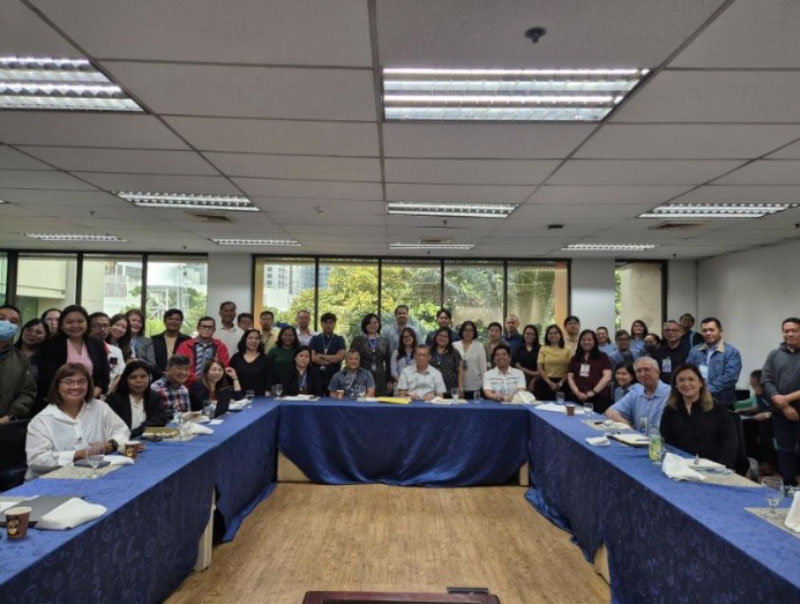

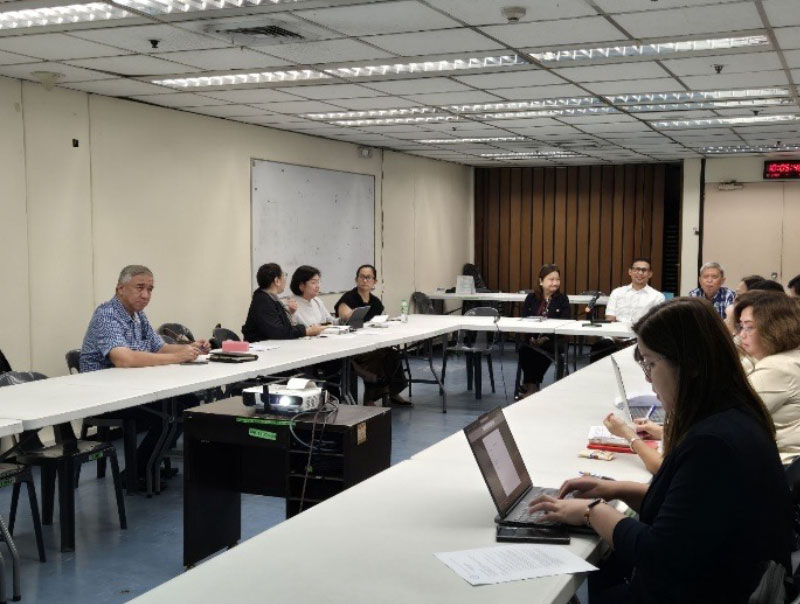
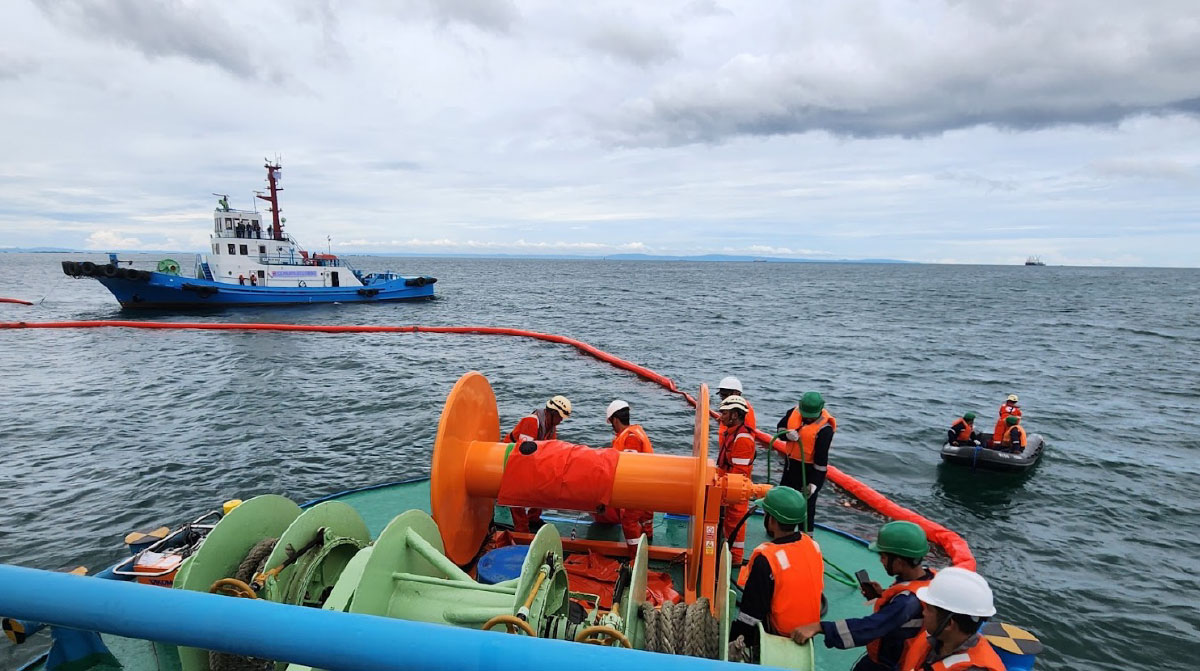 Tugboat Pacific Rose 10 and Tugboat Pacific Rose 1 deployed the spill and started maneuvering as they make a “U” Formation and form a barrier around the spill, during the simulated exercise at Cebu City.
Tugboat Pacific Rose 10 and Tugboat Pacific Rose 1 deployed the spill and started maneuvering as they make a “U” Formation and form a barrier around the spill, during the simulated exercise at Cebu City. 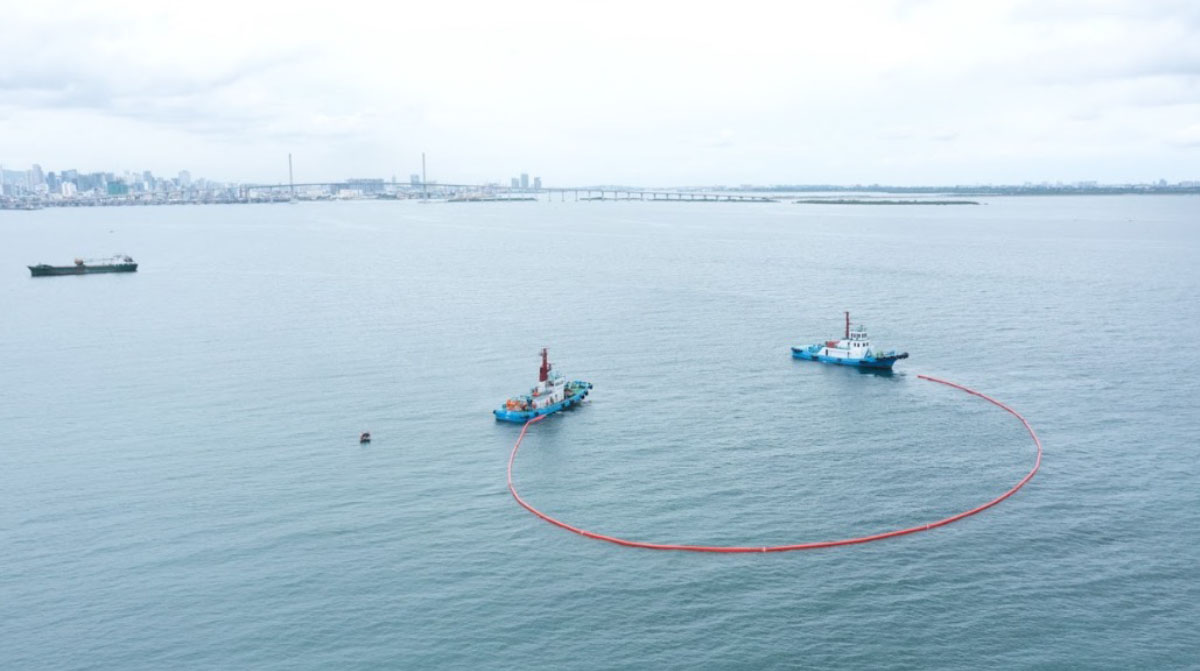 Tugboat Pacific Rose 10 (left) as the lead OSR tug and Tugboat Pacific Rose 1 (right) as the back-up/assist, deployed the spill boom to make a “U” Formation as a barrier around the spill, holding the oil in place more efficiently. It was followed by “J” formation to prepare for the deployment of skimmer.
Tugboat Pacific Rose 10 (left) as the lead OSR tug and Tugboat Pacific Rose 1 (right) as the back-up/assist, deployed the spill boom to make a “U” Formation as a barrier around the spill, holding the oil in place more efficiently. It was followed by “J” formation to prepare for the deployment of skimmer. 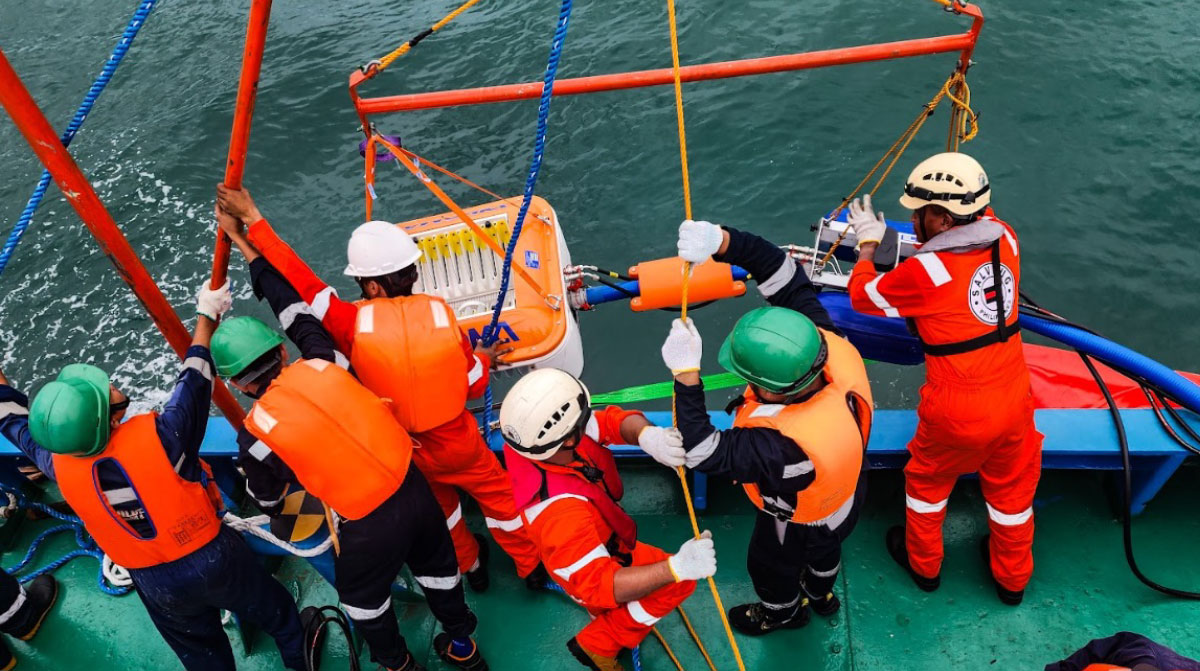 The PIP’s oil spill response organization – Malayan Towage and Salvage Corporation is preparing to launch the oil skimmer, after the product has been contained in the spill boom.
The PIP’s oil spill response organization – Malayan Towage and Salvage Corporation is preparing to launch the oil skimmer, after the product has been contained in the spill boom. 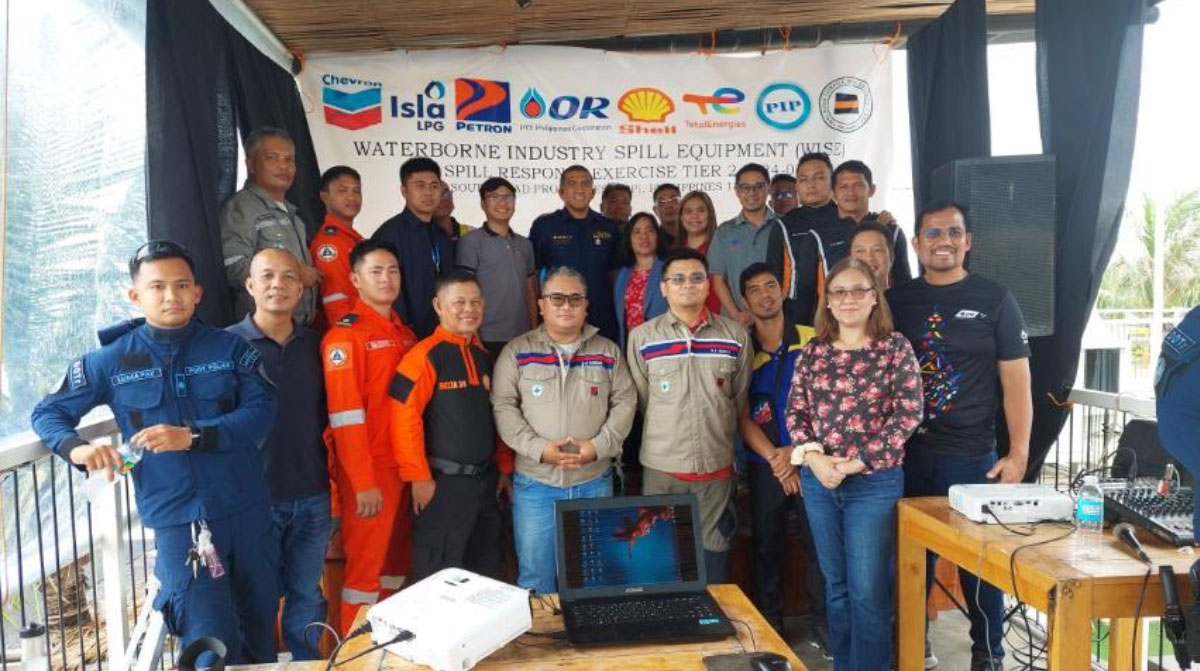 The members of the Philippine Institute of Petroleum (Chevron, Petron, Shell, PTT, Total and Isla) together with the other attendees and participants of the PIP WISE Oil Spill Response Exercise from PCG, Cebu Port Authority, CDRRMC and the DOE-OIMB.
The members of the Philippine Institute of Petroleum (Chevron, Petron, Shell, PTT, Total and Isla) together with the other attendees and participants of the PIP WISE Oil Spill Response Exercise from PCG, Cebu Port Authority, CDRRMC and the DOE-OIMB.